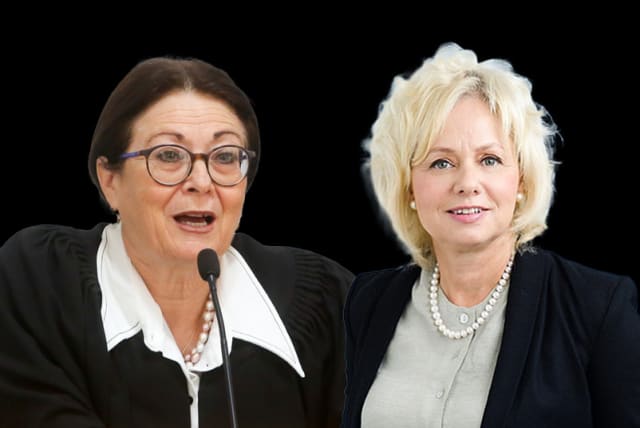50 Influential Jews: Esther Hayut and Gali Baharav-Miara - No. 6

For those opposing the Judicial reform, the Supreme Court President and the Attorney-General are the symbols of Israel’s liberal democratic order. Here is why.
Supreme Court President Esther Hayut and Attorney-General Gali Baharav-Miara have not only been engaged with sensitive and wide-ranging legal issues in 2023 but have also been seen by those against the judicial reform as symbols of Israel’s liberal democratic order. For the Right, they are figureheads of a stifling legal regime.
No. 5: Yariv Levin and Simcha Rothman >>
Hayut is set to retire from the Supreme Court in October after 20 years on the bench and six leading it. For her, 2023 started with the challenges against Shas Chairman Arye Deri’s ministerial appointments. The Supreme Court president spoke vigorously against the judicial reform in an unprecedented statement against public policy, and her last month in office is fraught with legal challenges related to the judicial reform.
In September, she will be involved in hearings on delaying the Incapacitation Law and canceling the reasonableness standard. The reasonableness hearing will see a historic 15 justices presiding over a case in which the court may strike down a basic law amendment for the first time.
Baharav-Miara, the first female Attorney-General, has, like Hayut, spoken against the judicial reform, issuing opinions warning the overhaul is damaging to the rule of law and checks and balances. Baharav-Miara has been a foil to Prime Minister Benjamin Netanyahu’s efforts to involve himself in the reform and test the limits of his conflict of interest agreement, making history by sanctioning the striking of a basic law amendment, the incapacitation law.
The A-G has been attacked by coalition officials as undermining their policies, often issuing opinions and having her office argue in court in conflict with the government she represents.

